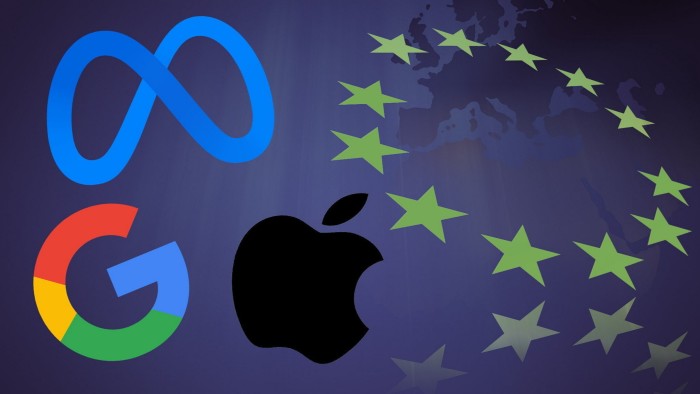Unlock the White House Watch newsletter for free
Your guide to what Trump’s second term means for Washington, business and the world
The writer is head of public policy at Y Combinator
For all its tough talk on Big Tech, the Trump administration is weighing a trade deal that would in effect pause enforcement of new European legislation designed to curtail the power of monopolies. If finalised, this move would send exactly the wrong message — that Washington is willing to undermine a landmark pro-competition law abroad to placate powerful corporations at home.
At its core, Europe’s new Digital Markets Act (DMA) imposes common sense rules on dominant platforms: don’t unfairly preference your own services, allow interoperability with smaller rivals and remove artificial barriers to competition.
In the absence of similar US legislation, the DMA has become the world’s most potent tool to check monopolistic self-dealing by tech gatekeepers. The EU has already begun enforcing it too, slapping Apple and Meta with hefty fines this spring.
For US negotiators to carve out exemptions for American companies now would defang the DMA and stall its pro-competition benefits just as they begin to be felt. This is a short-sighted approach that risks undercutting the Trump administration’s own pro-startup, pro-competition and pro-AI agenda.
Only entrenched tech giants have anything to gain from a transatlantic DMA timeout. The American public and our start-up economy will not benefit. Apple and Google’s struggles show why they would welcome a reprieve. Apple’s Siri remains embarrassingly primitive; Apple has refused to open its iOS operating system to outside innovation and reportedly is still years away from a true AI overhaul of its voice assistant. Google, meanwhile, fumbled its first attempts at generative AI. These tech giants aren’t seeking a level playing field — they are counting on Washington to protect their status quo.
The victims of a DMA pause would be America’s most innovative upstarts — especially AI start-ups. The DMA’s interoperability and fairness rules were designed to pry open closed platforms and give smaller companies a fighting chance. Without these rules, any new AI-powered app or search tool that gets blocked from the iPhone or buried in Google’s results is as good as dead.
This isn’t just bad optics — it flatly contradicts President Donald Trump’s own agenda. His strong appointments to the Justice Department and Federal Trade Commission have been touted as proof he’s defending so-called ‘little tech’ and American innovation by continuing the antitrust suits against Google and Apple. Why undercut Europe’s parallel effort to rein in those same gatekeepers? US antitrust case outcomes will take years of litigation and appeals. Europe’s DMA is already up and running.
Big Tech lobbyists portray the DMA as anti-American. In reality, the DMA’s goals align with American ideals of fair competition. This isn’t Europe versus America; it’s open markets versus closed ones.
Vice-president JD Vance clearly grasps this nuance. On a trip to Paris earlier this year, he criticised broad EU tech rules he said would stifle innovation — yet omitted the DMA. Even a staunch defender of US tech interests like Vance seems to recognises that cracking down on gatekeeping is not the same as over-regulating emerging technologies. The Trump administration should continue his example: push back on burdensome rules, but maintain a neutral view on the EU’s pro-competition measures like the DMA.
As the White House sets its trade stance, it should keep the DMA off the bargaining table. Trump was right to push back against Canada’s now-abandoned 3 per cent Digital Services Tax — an outright toll on US revenues that opened no new markets. But trade negotiators should leave Europe’s DMA alone. It may be a European law, but it helps to level the playing field for US consumers and innovators too. Trump has an opportunity to match his administration’s actions to its rhetoric: stand up for fair markets and let Europe’s pro-competition law run its course. That would reaffirm that America’s edge comes from innovation, not coddling yesterday’s tech monopolists.
